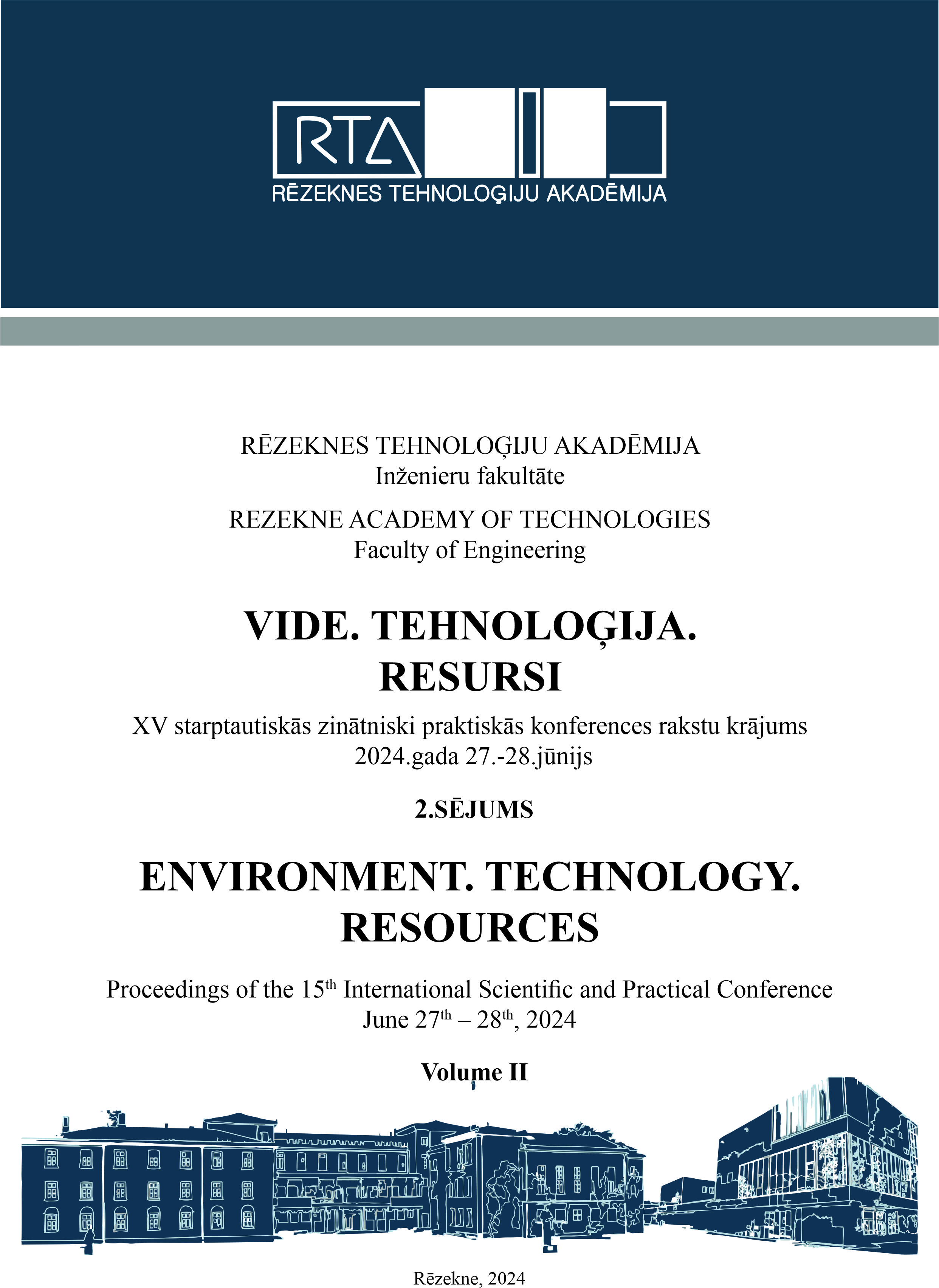RESEARCH OF DIFFERENT TURBO CODE SPEEDS, TYPES OF MODULATIONS, DECODING METHODS AND THEIR COMPATIBILITY WITH ENCRYPTION TECHNIQUES
DOI:
https://doi.org/10.17770/etr2024vol2.8037Keywords:
turbo codes, error correction, encryption, communication systemsAbstract
Turbo codes are widely used to perform reliable information transfer over noisy communication connections with limited bandwidth or latency. The focus of the report is the analysis of different turbo encoder speed of the code, types of modulations, decoding methods and their joint use with information covert transmission methods. Realization of the communication channels is realized via Matlab/Simulink software. The effectiveness of communication systems is a matter of constant analysis and research by experts in the field of communication technologies.
References
Erico Guizzo, “Closing In On The Perfect Code”, [Online], Available: https://spectrum.ieee.org/turbo-codes , [Accessed March 1, 2004].
Keattisak Sripimanwat, “Turbo Code Applications - A Journey from a Paper to Realization”, National Electronics and Computer Technology Center (NECTEC), Pathumthani, Thailand, 2005;
K. O. Slavyanov, “Contemporary Synthetic Aperture Radar Systems.Market Situation”, International Scientific Conference “Defense Technology” at “Artillery, Aircraft Defense and CIS” Shumen, Bulgaria, 2017;
L. Nikolov, R. Dimov, B. Zlatinov, “Malware in Social Engineering”, “Scientific-Technical Union Of Mechanical Engineering - Industry 4.0”, Borovets Winter Resort, Bulgaria, 2020;
Suriyanath, RSA algorithm, MATLAB Central File Exchange, [Online], Available:.https://nl.mathworks.com/matlabcentral/fileexchange/46824-rsa-algorithm; [Accessed: April 12, 2024];
Z. J. Luo, R. Liu, A. Mehta, “Understanding the RSA algorithm”, 2023;
Mathworks support centre, Documentation, [Online], Available: https://nl.mathworks.com/help/comm/ug/awgn-channel.html, [Accessed: 1994-2024 The MathWorks, Inc.]
Mathworks support centre, Documentation, [Online], Available: https://nl.mathworks.com/help/comm/ref/poly2trellis.html?searchHighlight=poly2trellis&s_tid=srchtitle_support_results_1_poly2trellis, [Accessed: 1994-2024 The MathWorks, Inc.]
D. Dimitrov, M. Kirov, “Methods For Increasing Information Authenticity by Knowing Objects for Identification System “IFF””, Sientific Session - Part I, National Military University "Vasil Levski", V. Tarnovo, 2010;
T. G. Peshev, “Types of processor architectures for signal processing in inverse antenna aperture synthesis radar”, Sientific Session - Part I, National Military University "Vasil Levski", V. Tarnovo, 2010;
J. Kenea, K. Kulatb, “Soft Output Decoding Algorithm for Turbo Codes Implementation in Mobile Wi-Max Environment”, “2nd International Conference on Communication, Computing & Security”, [Online] Available: https://www.sciencedirect.com/science/article/pii/S2212017312006251, [Accessed: November 12, 2012 [ICCCS-2012], DOI: 10.1016/j.protcy.2012.10.080;
B. Bedzhev, D. Dimitrov, “Application Of Quasi Complementary Pairs Of Phase Manipulated Signals In Radio-Communication Systems”, Proceedings of “International Scientific Conference - Defense Technologies”, DefTech, Shumen, Bulgaria, 2023.
Downloads
Published
Issue
Section
License
Copyright (c) 2024 Stanimir Parvanov

This work is licensed under a Creative Commons Attribution 4.0 International License.



